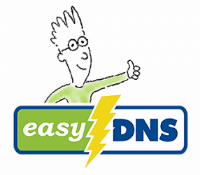Patent Allows Watermarking of Already Encrypted Movies
dimanche 31 août 2014 à 17:56 While the name Verance might not be particularly well known, the company’s anti-piracy technology is present in millions of DVD and Blu-ray players and the media they play.
While the name Verance might not be particularly well known, the company’s anti-piracy technology is present in millions of DVD and Blu-ray players and the media they play.
Every licensed Blu-ray playback device since 2012 has supported the technology which is designed to limit the usefulness of pirated content. Illicit copies of movies protected by Cinavia work at first, but after a few minutes playback is halted and replaced by a warning notice.
This is achieved by a complex watermarking system that not only protects retail media but also illicit recordings of first-run movies. Now Verance has been awarded a patent for a new watermarking system with fresh aims in mind.
The patent, ‘Watermarking in an encrypted domain’, begins with a description of how encryption can protect multimedia content from piracy during storage or while being transported from one location to another.
“The encrypted content may be securely broadcast over the air, through the Internet, over cable networks, over wireless networks, distributed via storage media, or disseminated through other means with little concern about piracy of the content,” Verance begins.
Levels of security vary, Verance explains, depending on the strength of encryption algorithms and encryption key management. However, at some point content needs to be decrypted in order for it to be processed or consumed, and at this point it is vulnerable to piracy and distribution.
“This is particularly true for multimedia content that must inevitably be converted to audio and/or visual signals (e.g., analog format) in order to reach an audience,” Verance explain.
While the company notes that at this stage content is vulnerable to copying, solutions are available to help protect against what it describes as the “analog hole”. As the creator of Cinavia, it’s no surprise Verance promotes watermarking.
“Digital watermarking is typically referred to as the insertion of auxiliary information bits into a host signal without producing perceptible artifacts,” Verance explains.
In other words, content watermarked effectively will carry such marks regardless of further distribution, copying techniques, or deliberate attacks designed to remove them. Cinavia is one such example, the company notes.
However, Verance admits that watermarking has limitations. In a supply chain, for example, the need to watermark already encrypted content can trigger time-intensive operations. For this, the company says it has a solution.
Verance has come up with a system with the ability to insert watermarks into content that has already been compressed and encrypted, without the need for decryption, decompression, or subsequent re-compression and re-encryption.
In terms of an application, Verance describes an example workflow in which movie content could be watermarked and then encrypted in order to protect it during distribution. The system has the ability to further watermark encrypted content as it passes through various supply chain stages and locations without compromising its security.
“In a forensic tracking application, a digital movie, after appropriate post production processing, may be encrypted at the movie studio or post production house, and sent out for distribution to movie theaters, to on-line retailers, or directly to the consumer,” Verance explains.
“In such applications, it is often desired to insert forensic or transactional watermarks into the movie content to identify each entity or node in the distribution channel, including the purchasers of the content, the various distributors of the content, the presentation venue and the time/date/location of each presentation or purchase.”
Verance believes that being able to track distribution points, sales locations such as movie theaters or stores, and even end users will be a big plus to adopters. Those up to the complex analysis can see how the company intends to work its magic by viewing its extremely technical and lengthy patent.
Source: TorrentFreak, for the latest info on copyright, file-sharing and anonymous VPN services.

 February last year,
February last year, 
